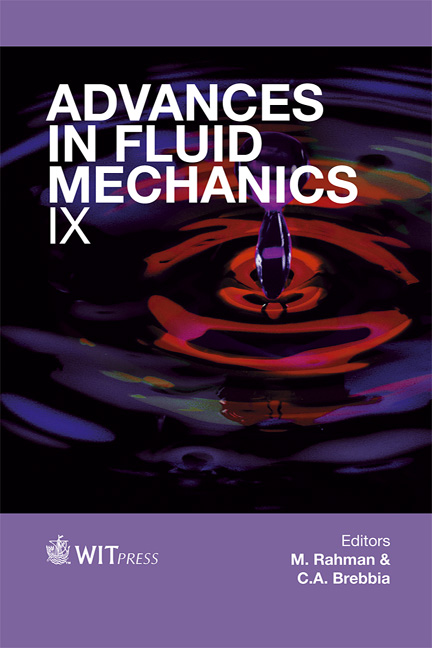Research On The Heat Transfer Law Of Gas-liquid Two-phase Flow In A Deepwater Wellbore
Price
Free (open access)
Transaction
Volume
74
Pages
15
Page Range
465 - 479
Published
2012
Size
1,241 kb
Paper DOI
10.2495/AFM120411
Copyright
WIT Press
Author(s)
B. J. Sun, Y. H. Gao, Y. Q. Ma, Z. Y. Wang & H. Li
Abstract
According to the features of low temperature and Type III boundary conditions during deepwater oil and gas exploitation, an experimental system was designed and built to simulate the heat transfer of deepwater oil and gas. A large number of laboratory experiments were carried out and the relational expressions of the heat transfer as well as the influence of the gas-liquid discharge on the heat transfer of each gas-liquid two-phase flow patterns under the deepwater and lowtemperature Type III boundary conditions were obtained. The results show that the expression in the laminar flow obtained in this paper is largely different from the relational expression of the heat transfer at ordinary temperatures under the simple boundary conditions. The two expressions are in substantial agreement in the turbulent flow. The liquid discharge is the principal factor which influences the heat transfer in the bubbly flow, slug flow and annular flow while the gasliquid two-phase flow has little influence on the heat transfer in the churn flow. Keywords: deepwater, gas-liquid two-phase flow, transfer, experiment. 1 Introduction In process of the deepwater oil development, the low-temperature characteristic (2-6ºC) of the seawater can bring about low temperature in a portion of the wellbore. In addition, if it is gas-liquid two-phase flow in the wellbore, the temperature field will be more complex. According to the published documents, the temperature range of current experimental research of the non-boiling cooling heat transfer of the gas-liquid two-phase flow is generally at ordinary temperatures (above 20ºC) (e.g. Taitel and Barnea [1]) or low temperature (80K- 85K with the medium of liquid nitrogen) [2, 3]. There is no experimental
Keywords
deepwater, gas-liquid two-phase flow, transfer, experiment.





